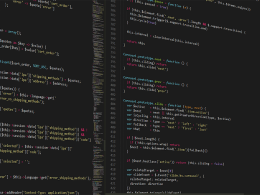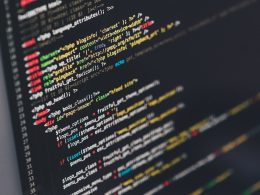In the realm of medicine, computer science has revolutionized the way healthcare professionals diagnose and treat illnesses. The use of electronic medical records (EMR) and digital tools has allowed doctors to gather and analyze data more efficiently, leading to better patient outcomes. Additionally, computer-assisted surgeries have become increasingly common, allowing for greater accuracy and reducing the risk of human error.
The financial industry is another area where programming has had a significant impact. With the rise of complex financial models, programming languages, such as Python and R, have become critical tools for financial analysts and traders. These languages allow for the efficient analysis of large amounts of financial data, leading to more informed investment decisions.
The role of programming is not limited to medicine and finance, either. In the field of agriculture, programming enables automated irrigation systems, allowing for more efficient water usage and improved crop yield. In transportation, programming has facilitated the development of self-driving vehicles, reducing the risk of accidents caused by human error.
At its core, programming involves the creation of software and algorithms that allow businesses and professionals to perform tasks more efficiently, accurately, and quickly than before. As such, its potential applications extend beyond any one industry, with programming having been adopted in a wide range of fields, including retail, gaming, and entertainment.
However, for programming to continue its expansion into new industries, it is vital for individuals to receive the necessary training in computer science. This includes education in programming languages, algorithms, data structures, and more. Fortunately, many universities and educational institutions offer programs in computer science, making it easier than ever for individuals to gain the skills and knowledge they need.
In conclusion, programming has become an indispensable tool for many industries in modern times. As the world becomes increasingly digitized, the demand for skilled programmers will only continue to rise. With the right training and education, these individuals can play a vital role in shaping the future of healthcare, finance, agriculture, and more.









